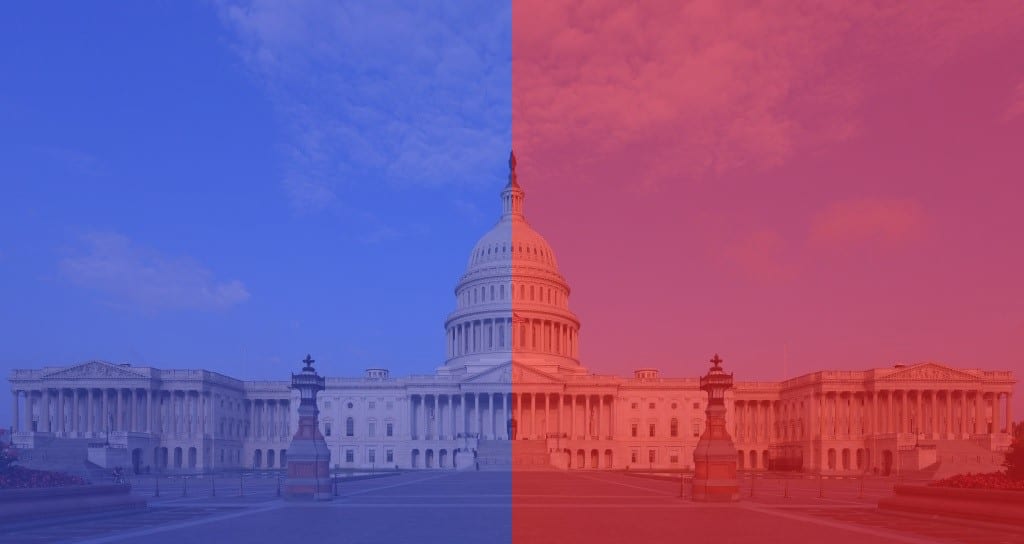
A version of the fiery interagency and inter-branch tug of war that produced this year’s controversial civilian nuclear weapons budget would be essentially legalized, if a compromise 2021 defense authorization bill unveiled Thursday becomes law.
The unified 2021 National Defense Authorization Act (NDAA), which lameduck President Donald Trump has threatened to veto over matters unrelated to nuclear weapons or Pentagon programs, authorizes the roughly $20 billion the NNSA requested for the 2021 fiscal year that began Oct. 1. On a Thursday call with reporters, a congressional aide said the House could hold a unanimous consent vote on the bill on Monday or Tuesday.
Under the latest NDAA, the interagency, Pentagon-led Nuclear Weapons Council would be allowed to formally label the Department of Energy’s annual nuclear-weapons budget request inadequate, triggering an automatic notification to Congress when the White House shares its final funding requests for the coming fiscal year with lawmakers.
It was a compromise between the House’s idea to make the Pentagon itself pay for any budget increases it wants for DOE’s semiautonomous National Nuclear Security Administration (NNSA), and the Senate’s idea to essentially let the joint NNSA-Pentagon Nuclear Weapons Council write NNSA’s budget request for the secretary of energy each year.
NNSA handles all U.S. nuclear warhead and bomb maintenance and modernization. Only the NNSA administrator, out of thousands of NNSA employees and contractors, reports directly to the secretary of energy.
Congress unveiled the NDAA’s proposed rules for NNSA budget planning roughly a year after then-NNSA Administrator Lisa Gordon-Hagerty balked at what she and Ellen Lord, chair of the Nuclear Weapons Council and undersecretary of defense for acquisition and sustainment, called an inadequate NNSA budget request by Secretary of Energy Dan Brouillette: $17.5 billion or so for 2021 instead of the nearly $20 billion Gordon-Hagerty sought.
Correspondence between Gordon-Hagerty and Lord about the inadequacy of Brouillette’s request leaked to Congress, prompting Sen. James Inhofe (R-Okla.), the Armed Services chair, to lead a delegation of conservative Trump allies to the Oval Office in January to lobby for Gordon-Hagerty’s number.
After the White House meeting, which happened around the time the Senate was holding Trump’s impeachment trial, the President approved the $20 billion NNSA request. Initially, the White House proposed to increase the NNSA’s budget by cutting funding for a Virginia-class nuclear-powered attack submarine in 2021.
But the sub never got cut. The compromise NDAA authorized funding for two Virginia-class boats, as the Navy requested. An aide said on Thursday’s press call that the money to keep the submarine and NNSA programs whole came from the Pentagon’s classified budget.
Fiscal year 2021 started Oct. 1, but the NNSA’s budget is still nowhere near $20 billion. The DOE nuclear-weapon steward, like the rest of the federal government, is funded with a stopgap bill that extended 2020 budgets through Dec. 11. Congress and the White House, in the throes of an unprecedented global pandemic and with the election looming, deadlocked this summer and didn’t pass permanent appropriations bills before the 2020 fiscal year ended.
House appropriators got their spending bills to the Senate in July. Those proposals declined to match the NNSA’s request. On the other hand, Senate appropriators, who finally released their 2021 spending bills about a month before appropriations will lapse, did pony up for the NNSA.
If granted, the NNSA’s request would give the nuclear weapons agency about a $3 billion raise from its 2020 budget. The House’s proposed NNSA budget for 2021 would be about a $1.3 billion raise over 2020, but some $1.7 billion below the request.
Meanwhile, Gordon-Hagerty is now watching the budget debate play out from the sidelines. Days after the Nov. 3 election, Brouillete decided to elevate her deputy William Bookless to acting administrator and demand Gordon-Hagerty’s resignation. The move gives Brouillette an essentially free hand in negotiations with Congress during the lameduck session.
Editor’s note, 12/08/2020, 2:00 p.m. Eastern: the story was corrected to read that if the Nuclear Weapons Council determines the secretary of energy’s proposed budget for the NNSA is inadequate, the White House must include that determination with its annual budget request to Congress.